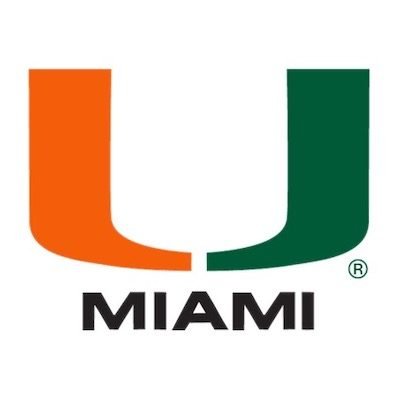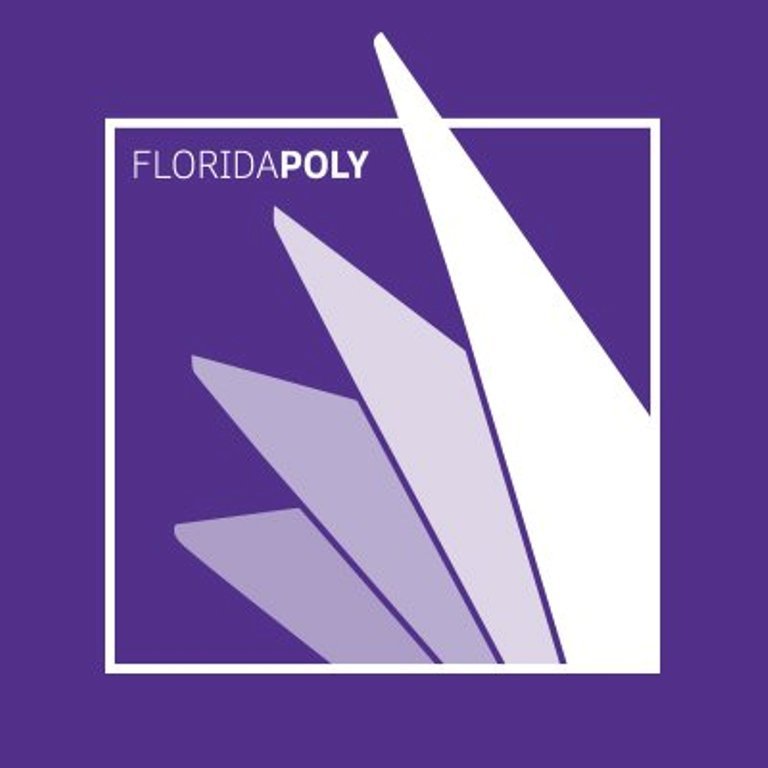Covid-19 Has Infected the Common App!

This year’s Common App will include a Covid-19-specific writing prompt for students who would like to share with colleges how the pandemic has impacted their lives, personally and/or educationally. The goal is to reduce anxiety for applicants affected by these extraordinary circumstances and provide them with a way to share their experience with colleges. Responding to this prompt is optional – truly optional – not “optional” the way some colleges’ supplemental essay questions are optional, but to which you should nonetheless respond. One thing’s for sure: you don’t want to write a response that doesn’t stand out, that sounds like everyone else’s response, or lacks sensitivity. We’ll explain. But first, let’s look at the wording of the optional prompt:
 “Community disruptions such as Covid-19 and natural disasters can have deep and long-lasting impacts. If you need it, this space is yours to describe those impacts. Colleges care about the effects on your health and well-being, safety, family circumstances, future plans, and education, including access to reliable technology and quiet study spaces.
“Community disruptions such as Covid-19 and natural disasters can have deep and long-lasting impacts. If you need it, this space is yours to describe those impacts. Colleges care about the effects on your health and well-being, safety, family circumstances, future plans, and education, including access to reliable technology and quiet study spaces.
Do you wish to share anything on this topic? Y/N
Please use this space to describe how these events have impacted you.
The question will appear in Common App’s Additional Information section; the word limit for your response is 250.
Should you choose “Y” and share, or should you choose “N” and avoid sharing any written response to this prompt? The right answer hinges on how you approach your response. What you write requires the sort of sensitivity and reflection that make you stand out as the mature student a college would like to admit to their community.
We know of no one who has avoided this all-encompassing pandemic. Everyone, it seems, has a story to tell. If you chose to respond to this prompt, what would your short description say?
 The pandemic’s effect on you as a student, a member of your family, a human being, and the relative significance and uniqueness of that effect should be the driver of whether or not you respond. The readers of your essay will look for a link between who you are as a person and who you’re going to be as a student, because the qualities of each are inextricably intertwined. Did COVID-19 have a significant impact on you as a person and/or student? Moreover, they want to understand the context in which you endured – and responded to − your shelter-at-home situation and online education, so they can evaluate your entire application with the appropriate perspective.
The pandemic’s effect on you as a student, a member of your family, a human being, and the relative significance and uniqueness of that effect should be the driver of whether or not you respond. The readers of your essay will look for a link between who you are as a person and who you’re going to be as a student, because the qualities of each are inextricably intertwined. Did COVID-19 have a significant impact on you as a person and/or student? Moreover, they want to understand the context in which you endured – and responded to − your shelter-at-home situation and online education, so they can evaluate your entire application with the appropriate perspective.
Remember, there are other sections in the Common App where you can (and should) demonstrate who you are as a person: Those include the Personal Statement and Activities sections, and possibly in the non-Covid-19-related portion of the Additional Information section.
Here’s one example of why you may choose to write a short response to the Covid-19 question: Since this is a college application, you can, if appropriate, explain an academic impact on you of Covid-19. Jim Rawlins, Assistant Vice President and Director Of Admissions at the University of Oregon, stated it this way in a recent post on forbes.com: “When you are given the chance to share practical impacts COVID-19 had on you, such as your education environment, or your family’s health or work/income, it’s okay to share. That will help us put your academic record (and everything else) in the right context.” Note the “your academic record” part and that the “and everything else” part is parenthetic. Your appropriate response, in this case, would be about the pandemic’s direct and significant impact on your academics. But as you’ll read below, that’s only one of several reasons for responding to the prompt.
And in that same Forbes post, Shawn Abbott, Vice Provost for Admissions, Financial Aid & Enrollment Management at Temple University, is quoted as saying, “Know in advance that colleges will fully recognize the impact of what COVID-19 had on your high school experience. Don't let this one public health crisis (as dramatic as it was!) define you.” Don’t write about the pandemic in general; college admissions officers – who suffered many of the same restrictions as you did − know everything they need to know about it. What they don’t know is how it may have had a special effect on you. Can you write a thoughtful, personal response that conveys insight and maturity?
 What life lessons did you learn during your time at home? Perhaps you experienced significant feelings of grief, loss, and fear that may impact your life far beyond this time. This essay gives you a way to express your grief, process your loss, and share the lessons learned from a teenager’s perspective. Did you observe your mom’s desperation when she lost her job and cried for days? Did you see your parents break down in tears because they couldn’t visit your grandmother in the hospital? Did you experience the death of a loved one for the first time? How did you handle not seeing your closest friends, not hugging your cousins, not going to once-in-a-lifetime events like prom or graduation that you’d looked forward to for so long? If you can clearly articulate a life lesson, then this essay is for you.
What life lessons did you learn during your time at home? Perhaps you experienced significant feelings of grief, loss, and fear that may impact your life far beyond this time. This essay gives you a way to express your grief, process your loss, and share the lessons learned from a teenager’s perspective. Did you observe your mom’s desperation when she lost her job and cried for days? Did you see your parents break down in tears because they couldn’t visit your grandmother in the hospital? Did you experience the death of a loved one for the first time? How did you handle not seeing your closest friends, not hugging your cousins, not going to once-in-a-lifetime events like prom or graduation that you’d looked forward to for so long? If you can clearly articulate a life lesson, then this essay is for you.
Here are some additional circumstances that meet our “relative significance and uniqueness” criteria for responding to the prompt:
 You became ill yourself with Covid-19 to the degree that it significantly impacted your academic performance.
You became ill yourself with Covid-19 to the degree that it significantly impacted your academic performance.- Somebody else in your household or family fell ill with Covid-19 or some related illness to the degree that it seriously impacted your academic performance, perhaps because of worry or because of taking on additional family responsibilities
- Your academic performance was detrimentally affected due to lack of effective internet access, and/or lack of an easily accessible, quiet study place.
- Your family was severely impacted financially through loss-of-work, which drastically changed family resources, your personal responsibilities, and your ability to keep up with schoolwork and other interests.
- A new-found personal resilience at home because you used your time for learning or for outreach-based pursuits − which has had a positive, deep, and long-lasting impact on you.
- You sensed – and can articulate − a profound change in your outlook on life; you no longer take certain things for granted, or perhaps you look forward to leading a simpler life (keep it focused on your thinking, your transformation).
 The optional Covid-19 essay, then, provides a valuable opportunity to explain to admission committees your unique situation and how your life has been disrupted – and reserve Common App’s personal essay for something that reflects more on who you are and what you’re passionate about. However, if your circumstances during the pandemic have been so extraordinary that they have given new meaning to your life, you can instead use your personal essay for meaningful reflections on the pandemic’s impact on you – and especially if you need a lot more than 250 words to explain how trying these extraordinary circumstances have been for you. Here’s one such example, written by a 17-year old boy from Singapore.
The optional Covid-19 essay, then, provides a valuable opportunity to explain to admission committees your unique situation and how your life has been disrupted – and reserve Common App’s personal essay for something that reflects more on who you are and what you’re passionate about. However, if your circumstances during the pandemic have been so extraordinary that they have given new meaning to your life, you can instead use your personal essay for meaningful reflections on the pandemic’s impact on you – and especially if you need a lot more than 250 words to explain how trying these extraordinary circumstances have been for you. Here’s one such example, written by a 17-year old boy from Singapore.
In closing, we want to reinforce the fact that you do not need to respond to this prompt. It really is optional. But if you’re still questioning whether to respond to the Covid-19 prompt or think that you should respond to it but need help crafting your response, contact us and we’ll be delighted to help you.
P.S. There will also be a Covid-19 question as part of the counselor recommendation, so colleges will also know how the pandemic specifically impacted your school in terms of online learning, grading system, and more. So, colleges will truly be in the best position to evaluate your application in full context.
P.P.S. We’d like to share with you what admission officers from ten universities have said regarding your writing about the impact of Covid-19 on you:
 Fordham University: During a recent interview, Fordham University admission counselors remarked, “We anticipate that the COVID-19 question will produce a wide-range of answers. We want students to take the space to share how COVID influenced their lives, whether that is hardships and disruptions, or ways in which they felt they were able to thrive in this time… We understand that students have different access and ability to participate in activities. So, within their environment, what did the student choose to − and was able to − do? We don't want to penalize a student for circumstances they can't control. As with any challenge a student faces, it's better to disclose. But, the student should tell the story about facing that challenge, seeking resources, adapting, and, most importantly, how this prepares him or her for college.”
Fordham University: During a recent interview, Fordham University admission counselors remarked, “We anticipate that the COVID-19 question will produce a wide-range of answers. We want students to take the space to share how COVID influenced their lives, whether that is hardships and disruptions, or ways in which they felt they were able to thrive in this time… We understand that students have different access and ability to participate in activities. So, within their environment, what did the student choose to − and was able to − do? We don't want to penalize a student for circumstances they can't control. As with any challenge a student faces, it's better to disclose. But, the student should tell the story about facing that challenge, seeking resources, adapting, and, most importantly, how this prepares him or her for college.”- University of Central Florida: During a webinar we co-hosted with Elizabeth Costello, UCF’s Director of Admission, she indicated that it’s important that students don’t make it a generic conversation about what Covid-19 was, but, rather how it’s impacted them as people and made them who they are or changed something about themselves – and making it personal is important.

- Florida State University: Hege Ferguson, FSU’s Director of Admission, told us during our webinar that “one of the most important things for us to know is the resilience of the student, because, honestly, the resilience of the student is going to determine student success in college as well… So, share with us. What did Covid-19 do? How did that impact your life and what did you make out of it? I’ve had some wonderful examples of students that have been able to do things virtually: volunteering, like with senior citizens, and you know, they are being able to create care packages and deliver… There are a lot of things that allow for students’ creativity to come out, and I think that that’s really neat… We would definitely want the students to be able to share with us their experiences, and perhaps more importantly, what came out of it for them.”
- University of Florida: UF’s Director of Admission, Charles Murphy, told us “Anything that is a common experience among a lot of students… you have to make sure that your essay is personalized, so we know it’s your essay.”
 University of Miami: In his webinar with us, Jay Jacobs, Director of Enrollment Management and Admissions Operations, told us, “If there’s a unique thing we need to know about your circumstances and that was the reason for the downturn in performance, you have to let us know that. You know if you have sick people in your family that you’re taking care of or six little brothers or sisters running around, you know - things like this, financial concerns. Things like this are real and will certainly bleed into how you do in the classroom, but we’re not mind readers, so you need to feel comfortable telling us that… Literally every high school student is going through the same thing… I would be careful about that because of the ‘making-yourself-stand-out-and-unique’ factor. Now, if there’s a real, genuine story that you need to tell that directly relates to Covid-19, then do it. But again, I would plug leaning on your resources here, at JRA Educational Consulting, or at school, to think about that.”
University of Miami: In his webinar with us, Jay Jacobs, Director of Enrollment Management and Admissions Operations, told us, “If there’s a unique thing we need to know about your circumstances and that was the reason for the downturn in performance, you have to let us know that. You know if you have sick people in your family that you’re taking care of or six little brothers or sisters running around, you know - things like this, financial concerns. Things like this are real and will certainly bleed into how you do in the classroom, but we’re not mind readers, so you need to feel comfortable telling us that… Literally every high school student is going through the same thing… I would be careful about that because of the ‘making-yourself-stand-out-and-unique’ factor. Now, if there’s a real, genuine story that you need to tell that directly relates to Covid-19, then do it. But again, I would plug leaning on your resources here, at JRA Educational Consulting, or at school, to think about that.”- Union College: Associate Dean of Admissions Michael E. Moor said during a recent webinar, “I did a similar session like this with some colleagues a couple of weeks ago, and I think there were five different schools represented. It was so interesting that everybody, their recommendation was that students should not write about Covid-19 on their essay. Now, if there’s a question on the application, that’s a bit different, particularly if there are extenuating circumstances. I would recommend it, if it’s a personal story to you…and it gives some context to your application.”
- Vanderbilt University: Admission Counselor Jan Suter remarked, “When you write about yourself, it needs to be distinguishable from everybody else. It needs to be really specific. You need to tell an interesting story… There are literally hundreds of thousands of people going through the same thing… So, how are you going to make your story, your essay, whatever you are writing about, unique to you? That’s what you have got to do with a Covid story, we’ll call it.”
 Indiana University: Scott Siegel, Senior Associate Director of Admissions, indicated that “maybe we’re a little different in the fact that we have a supplement, an IU-specific essay… We only read our supplement, and our supplement is a very straightforward ‘Why us? Why do you feel like would we best the fit for you in terms of reaching your academic or career goals?’ So that would be what we would be focusing on… But I do applaud the Common App for giving that space… That would be something that we would have in an applicant’s file, but that would not be the primary essay that we would be reading.”
Indiana University: Scott Siegel, Senior Associate Director of Admissions, indicated that “maybe we’re a little different in the fact that we have a supplement, an IU-specific essay… We only read our supplement, and our supplement is a very straightforward ‘Why us? Why do you feel like would we best the fit for you in terms of reaching your academic or career goals?’ So that would be what we would be focusing on… But I do applaud the Common App for giving that space… That would be something that we would have in an applicant’s file, but that would not be the primary essay that we would be reading.”- Lynn University: Senior Assistant Director of Admission Miguel Antunes told us, “Every family goes through a different circumstance. There’s no sort of cookie cutter platform that says it applies to every family. So, my point of encouragement would be to tell us as much as possible and have a conversation with us… Specifically give us as much information as you feel comfortable giving us, and then maybe even a conversation beyond that, so that can all be taken into consideration.”
 Florida Polytechnic Institute: Michelle Powell, Senior Associate Director of Admission, shared her thoughts during our webinar: “Having any type of context from the student is very helpful for us, maybe in terms of even accessing need-based aid for students that are admitted… We want to know that information about our students. We want to know how we can best serve them. So, that question is very helpful in gaining some of that information without overtaking the college essay. The essay can be used as a great way to express other information, so having this extra question allows students to express even more information to us.”
Florida Polytechnic Institute: Michelle Powell, Senior Associate Director of Admission, shared her thoughts during our webinar: “Having any type of context from the student is very helpful for us, maybe in terms of even accessing need-based aid for students that are admitted… We want to know that information about our students. We want to know how we can best serve them. So, that question is very helpful in gaining some of that information without overtaking the college essay. The essay can be used as a great way to express other information, so having this extra question allows students to express even more information to us.”
